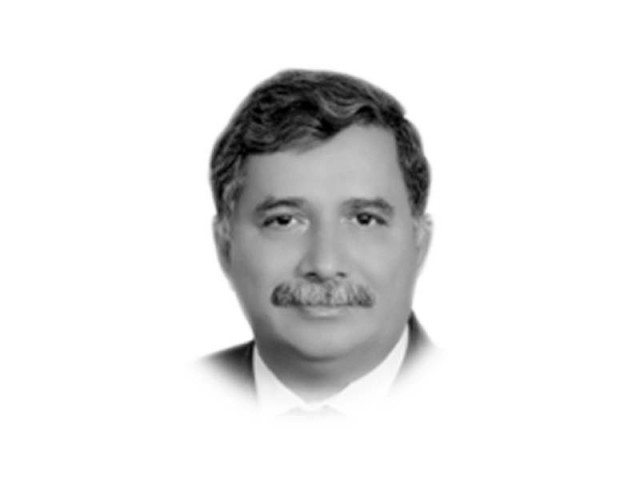Hope and despair: peace in Afghanistan
The Taliban, with guns in hand and freedom to move, will provide no free choice to those sitting on the sidelines

The writer is a former civil servant and advocate. He heads the Good Governance Forum and can be reached at aashah7@yahoo.com
Hopes to hammer out peaceful resolution through dialogue, efforts of Zalmay Khalilzad notwithstanding, appears to have hit a snag when the Taliban refused to accept the joining of the Afghan government’s delegation to the parleys in Qatar. Already a number of analysts and leaders, such as Asfandyar Wali Khan, familiar with history and outcome of such negotiations, were skeptical. The reason being that keeping out a segment of public leaders, particularly Pakhtun nationalists, was not only bound to create suspicion and concerns but also seemed elusive.
Before analysing the current events, it is necessary to recap the archives of such dialogues and their outcomes on the region after the withdrawal of the Soviet Union. The 1998 Geneva Accords were negotiated between the Soviet Union, Afghanistan and Pakistan but unfortunately the major guarantors failed to honour their main provisions regarding ending military support to the warring groups. The current euphoria about the reconciliation reverberates the same optimism and hopes of the international interlocutors, amidst refusal of mujahideen to hold talks with Dr Najeebullah-led government even after the withdrawal of Soviet Army. Trying to reach a reconciliation, Dr Najeeb offered his adversaries major concessions, including declaring a six-month unilateral ceasefire, approving a new constitution that recognised Islam as the state religion, introducing an electoral and multiparty system, implementing economic reforms to respect private property, granting amnesty to opposition leaders, releasing more than 16,000 political prisoners, and offering the opposition half of the posts in a government of national reconciliation. In such a backdrop, the team of those negotiators attempted to reach a peace agreement between the mujahideen and the Communist government in Kabul in early 1990. Finally, main divergent mujahideen groups through their representatives inked a political power-sharing compromise, commonly known as the “Peshawar Accords” in April 1992. However, the acrimony between key personalities and the parties they represented resulted in a civil war with devastating effect on the country. Ultimately, the power vacuum so created was filled by the forceful entry of the Taliban. Again, we saw the US in a new role when its own strategic interests and social order came under attack. They entered Afghanistan with boots on ground with the basic aim to dismantle centres of terrorism and to incapacitate al Qaeda. Hillary Clinton, the former US foreign secretary, said, “We also have a history of moving in and out of Pakistan. Let’s remember here the people we are fighting today, we funded 20 years ago. We did because we were locked in struggle with Soviet Union. They invaded. We did not want to see them control Central Asia. We went to war. We said, ‘pretty good idea! Let’s deal with the ISI, the Pakistan’s military. Let’s recruit mujahideens. Let’s bring Saudi Arabia, importing their brand of Islam, so we can beat and they retreated. What we sow we would harvest.’ We left. So we thus left Pakistan, we said, ‘OK you deal with the stingers we left all over your country. You deal with the mines along the border’.”
If history is to teach lessons then all such events of the past suggest that superpowers have their own strategic interests to achieve and all their moves centre on that. The US has, in its own wisdom, incapacitated the al Qaeda network which is no longer considered strong enough to threaten their vital national interests and social order. However, other regional players with their own interests have jumped into the arena to have their share of the pie. With this object in mind, these players are also banking on the Taliban while they consider the IS another radical group as a threat which has to be counter-balanced by the Taliban. Reports from various sources suggest that the Taliban are in a belligerent mood trying to advance their influence on ground using the negotiating table as part of the tactics. After nearly three decades, we are at square one. The immediate withdrawal of the US, without bolstering the National Unity Government with the presence of neutral forces to the satisfaction of all stakeholders, may plunge the country into chaos. We have to be mindful that the Afghan society is multidimensional. The Taliban are not their real face but a gun-toting militant force. Therefore, only appeasing them will never curry favour with other segments of society who believe in diversity and accommodation of all cultural identities and religious groups. Projecting the Taliban as the sole player within Afghanistan is a departure from the path of reconciliation as it neglects other major players within society. Though the Taliban with their grand strategy are harping to end US occupation and giving assurances to the US about their future concern. However, those associated with their mindset know very well that their ultimate aim is to capture power. Once they broker agreement and become part of the government, their influence is likely to grow. The Taliban, with guns in hand and freedom to move in all directions, will provide no free choice to those sitting on the sidelines. As such they will have to switch loyalty to them. Such a situation will be at the cost of participatory democracy, human rights and gender equality.
Published in The Express Tribune, January 23rd, 2019.
Like Opinion & Editorial on Facebook, follow @ETOpEd on Twitter to receive all updates on all our daily pieces.















COMMENTS
Comments are moderated and generally will be posted if they are on-topic and not abusive.
For more information, please see our Comments FAQ